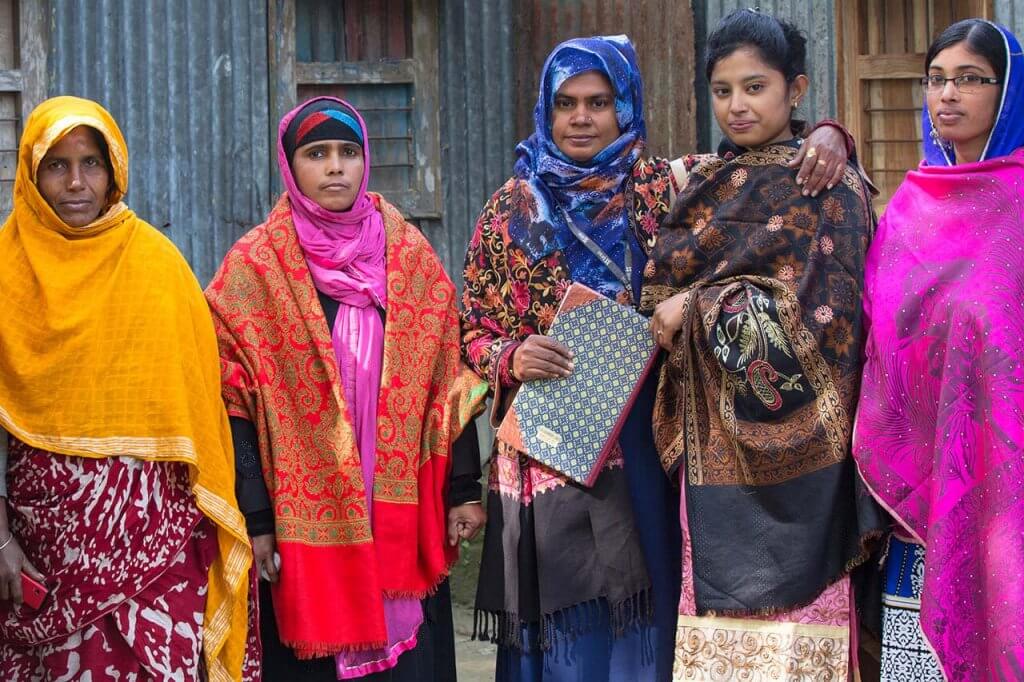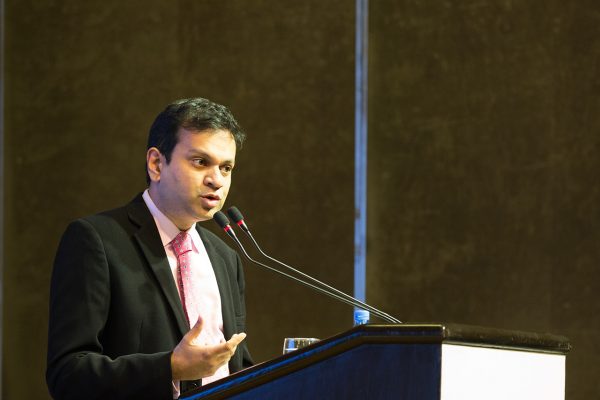IamBRAC: How to stop child marriage
Reading Time: 4 minutes
“The root of much abuse is child marriage. It has taken a considerable amount of time for people to understand that, and many souls have suffered unimaginably as a result. There is definitely greater awareness now, but it did not happen easily. We must continue to make sure no one allows it to happen.”
Rukhsana Zaman Konika speaks in a calming, confident voice.
“The change has happened slowly but surely.”
Konika’s dream of a beautiful world began when she was a child. She grew up in a lively home with six brothers and sisters, under the supportive guidance of her mother and father. She saw her father’s face and heard his voice every time a person came to her for help. Konika did everything in her power to help people from the youngest age, even it meant giving her meals to others.
“My father taught me early on about the importance of gender equality. He would always say:
“I have three daughters – I can never experience sadness. It would be even more impossible if had three more daughters instead of sons!”
Konika’s father passed away years ago, but she keeps his values close to her heart. Her family, in-laws and the entire community continues to support her, and takes great pride in her work. She has stood up for countless young women in the fight against child marriage.
Konika is a field officer working for BRAC’s community empowerment programme. She is currently posted in Shahjadpur in Sirajganj, northern Bangladesh. Her husband also works for an NGO.
She was first stationed in Raiganj, another sub-district of Sirajganj. There were mixed emotions – she was both excited and tense about her first job. Her father-in-law accompanied Konika on her first day. He inspected the office, and assured that his daughter-in-law was in a safe, reliable place.
Konika was entirely devoted to her work from the beginning. She facilitated polli somaj (women-led grassroots institutions) meetings. She made routine visits to other field offices. She travelled to many remote villages to stop child marriages and incidents of violence. She collected data from these incidents, and sent reports to the head office. She made decisions on how to assist survivors.
Konika is now an organiser of popular theatre shows in the regions with the highest number of early marriages and violent incidents.
One of the incidents that Konika remembers most vividly from all her years working with BRAC happened when she first joined. She met an elderly woman during a field visit who told Konika that her daughter had gotten divorced four years ago. She was entitled to BDT 35,000 (USD 420) after the arbitration, but she was still yet to receive it. The worker in charge of giving her the money had left his job for unknown reasons, and had taken the money with him. The woman was not able to get her daughter married because they were struggling without the money.
What a story to hear, that too about a colleague of her own! This shocked her, and offended her values. Her father and father-in-law were both teachers, and they taught her to always stay on a righteous path, and never turn away anyone in need.

She set out immediately to find him. She found his mobile number, called and explained the situation very politely to him. She gave her office address, and requested that he send the money because it would greatly help a struggling family.
An envelope arrived at her office after two weeks, addressed to Konika. Surprise, and then pure happiness, fled across her face as she opened the envelope, revealing exactly BDT 35,000.
It was then that she realised that politeness and patience can help bring people to do the right thing, even if they had been dishonest before.
Another story that remains clear in her memory is an unfortunate event that unfolded in her family many years ago.
Loud, angry voices were heard coming from her brother’s home. Her brother was known for his temper, but today, he seemed to have gone off the rails. In a fit of rage, he attacked his wife with a broomstick. Konika broke into a fit of tears, and told him repeatedly that he could never behave this way again. Her brother listened, and never hurt his wife again.
She has been a witness to many incidents like these, both directly and indirectly.
A young woman once joined a polli somaj meeting, only to go back to her home to be verbally abused by her husband for attending. Konika visited their home and spoke to her husband, explaining that he was also welcome to attend the meetings. He calmed down soon after, and started attending the meetings on a regular basis.
Raiganj, being her first workplace, is filled with many memories. It has been eight years since she has left, but she is constantly in touch with all the people she met. She is known as Ain Apa, or Law Lady, and a ‘journalist’, wherever she goes.
She walks without fear. From walking into her in-laws’ neighbours homes to stop someone from violently acting out, to walking into the homes and offices of local chairmen and police officers to get help, Konika never backs out of a difficult situation.
Konika is leading the way for our vision of a world free of discrimination, fighting against child marriage and violence against women. She is also actively getting men involved – encouraging them to be supportive of the girls in their lives to pursue education, and taking a stand against other men from eve-teasing and committing acts of violence.
Konika, and the countless other men and women, are the everyday heroes all around us who continue to give us hope for a better world.





